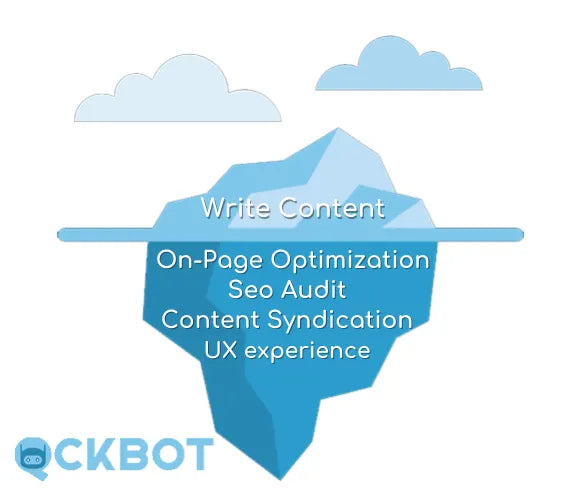Search Engine Optimization (SEO) is constantly evolving, and to stay ahead of the competition; you need to be aware of the latest trends and changes.
What worked in 2021 may not work in 2022. That’s why staying up-to-date on the latest SEO principles is important.
This blog post will discuss 10 SEO principles that will help your website rank higher in search engines and attract more visitors in 2022!
1. Understanding Keyword Density
One of the most important aspects of SEO is understanding keyword density. Keyword density is a measure of how frequently a given keyword appears on a web page.
To calculate keyword density, simply divide the number of times the keyword appears in your web page by the total word count of your page content.
The ideal keyword density is between 0.75% and 2%. Anything above 2% is considered over-optimization and can result in a penalty from Google.
When it comes to keyword density, less is more. A good rule of thumb is to use a keyword or phrase only when necessary and use variations of the keyword throughout your content. This will help you avoid over-optimization penalties and make your content more readable.

2. Keyword Research And Analysis
Keyword Research
Simply put, keyword research is the process of finding and analyzing keywords that people are searching for on search engines. You need to identify the keywords your target audience is searching for and then include these keywords in your content.
However, it’s not enough to just fill your content with keywords; you also need to make sure that you are using the right keywords for your niche.
You can use several tools to research keywords, such as BuzzSumo, Google AdWords Keyword Planner, Keyword Tool, and Moz Keyword Explorer. These tools will help you find the right keywords to target and provide insights into how difficult it will be to rank for them.
Once you’ve identified the right keywords, you will need to focus on long-tail keywords. These keywords – usually three or more words – are more specific and usually have a lower search volume. But they are also easier to rank for and can result in higher conversion rates.
For example, if you sell shoes, a long-tail keyword could be “women’s size 11 black leather pumps.” These keywords are much better than short-tail keywords – in this case, like “shoes” or “pumps” – because they are more specific and less competitive.
Keyword Analysis
Keyword analysis is an important part of any SEO strategy. Once you’ve identified the right keywords, you need to track your progress to see how well your content is ranking for these keywords.
You can use several tools to track your progress, such as Google Analytics, Moz Rank Checker, and SERPWoo. These tools will help you track your progress and see how your competitors rank for the same keywords.
3. Consistency In On-Page Optimization

Another important aspect of on-page optimization is consistency. This means that all the elements on your page – from the title tag to the Meta description to the content – should be optimized for your target keywords.
It can be tempting to stuff your content with keywords in an attempt to rank higher in search engine results pages. But this is not only bad for your readers; it can also result in a penalty from Google. So it’s important to ensure your keyword usage is natural and not excessive.
Another important element of consistency is ensuring all the links on your page point to the correct pages. For example, if you have a link to your home page in the header, make sure that all the other pages on your site also have a link to the home page.
This may seem like a small detail, but it’s important for both search engines and your readers.

4. Smart Off-Page SEO Practices
Off-page SEO refers to the process of optimizing your website for search engines by building links and creating social media profiles.
One of the best ways to build links is to guest blog on high-authority websites. This not only helps you get exposure to a new audience, but it also helps you build links back to your website. Ensure that you only guest blog on websites relevant to your niche and that you provide high-quality original content.
Another great way to build links is to create social media profiles and share your content on these platforms. This will help you get more exposure and also build links back to your website. Make sure that you only share your content on high-quality websites and that you provide valuable, original content.
5. Content Syndication
This is one of the most important principles of SEO. It simply refers to sharing your content on other websites.
This can be a great way to get more exposure for your website and also to build links back to your website. Make sure that you only syndicate your content on high-quality websites and that you provide valuable, original content.
6. Create Content Silos
A content silo is a group of related pages on your website that are all optimized for the same keyword. This is an important part of on-page optimization and can help you rank higher in search engines.
To Create A Content Silo:

- Start by finding a group of related keywords that you want to target.
- Create a page for each keyword and optimize all the elements on the page for that keyword.
- Link all the pages together so that the search engines can easily find all the related content.
By creating content silos, you can ensure that all the content on your website is relevant to your target keywords. This will help you rank higher in search engines and also provide a better experience for your readers.

7. SEO Audit
This is a comprehensive analysis of your website to see how it can be improved for search engines. This includes looking at things like your website’s structure, title tags, Meta descriptions, and content.
An SEO audit can be a valuable tool for improving your website’s ranking in search engines. It can also help you identify any areas that need to be improved.
If you’re serious about improving your website’s ranking, you should consider doing an SEO audit. This will help you identify any areas that need improvement and also give you a roadmap for improving your website.

8. Publishing High-Quality Content
One of the most important factors in ranking high in search engines is publishing high-quality content. This means that your content must be well-written, informative, and keyword-rich.
One of the best ways to ensure that your content is high-quality is to hire a professional writer. This is someone who knows how to write for the web and can help you create informative and keyword-rich content.
Another way to ensure that your content is high-quality is to publish it regularly. This means that you should be publishing new content on a regular basis. This will keep your website fresh and relevant and will also help you build a following of loyal readers.
By publishing high-quality content, your website’s ranking will improve in the search engines, and you will also build a following of loyal readers. This will help you increase website traffic and improve your bottom line.
9. URL Optimization - Make Your Content Match Your URL

One of the most important factors in ranking high in search engines is ensuring that your content matches your URL. This means that your keywords should be included in your URL and that your URL should be relevant to your content.
For example, if you’re selling red hoodies, you should include the keyword “red hoodies” in your URL. This will help the search engines understand what your page is about and will also help you rank higher for that keyword.
In addition, you should also make sure that your URL is relevant to your content. This means that it should be descriptive and keyword-rich. By making your URL relevant to your content, you can improve your website’s ranking in search engines.

10. Focusing On User Experience
Another important SEO principle is to focus on user experience. This means your website should be designed for your readers and not search engines.
While it’s important to include keywords in your content, you should also make sure that your content is easy to read and understand. This means using short paragraphs, headings and subheadings, and images and videos.
Also, your website should be easy to navigate. This means having a well-organized navigation system and an easy-to-use search function. By making your website easy to use, you can improve your website’s ranking in the search engines and also provide a better experience for your readers.

Rank Higher In Search Engines By Using These Simple Principles Of SEO
By following these simple SEO principles, you can improve your website’s ranking in search engines. You can also provide a better experience for your readers. These SEO principles will help you build a successful website that can generate traffic and improve your bottom line.
If you’re ready to take your website to the next level, then contact QCKBOT today. We can help you improve your website’s ranking in the search engines and also provide a better experience for your readers.
Contact us today to learn more about our services


